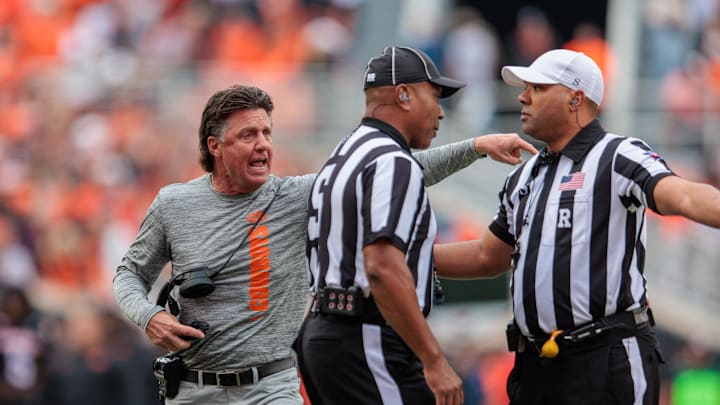NCAA Approves College Football Injury Timeout Changes for 2025

In this story:
A long-awaited change is finally coming to college football.
On Thursday, Brett McMurphy reported that the NCAA has approved a change to injury timeouts. Starting next season, late injuries will come with a cost.
Any time medical personnel enter the field after the ball is ready for play, that team will be charged a timeout. If that team is out of timeouts, there will instead be a 5-yard penalty assessed for delay of game.
This move comes after years of coaches and others in the college football world complaining about players faking injuries to stop play. Now, if players wait too long to go down and request medical attention, their team will be forced to pay the price.
Over the years, Oklahoma State has been the victim of opponents faking injuries to stop play. Considering Mike Gundy’s often high-flying and fast-paced attack on offense, it has always made sense for defenses to try and get a break if the Cowboys are in a rhythm driving downfield.
Up to this point, these injury stoppages have been criticised heavily by fans and coaches as they gave defenses an unfair advantage. Now, it appears that teams will be able to avoid the last-second stoppages and be able to stay in a rhythm on offense.
However, there are still some ways to get around this rule change. The most obvious loophole in this rule would be for players to simply go down and claim an injury quicker before the ball is set.
While there is no way to truly eliminate fake injuries from the game, this is at least a step in the right direction. This rule change has been long overdue, but now that it is finally happening, there should be some satisfaction with how the NCAA is addressing the issue.
While there could be situations where a defense out of timeouts would rather take a delay of game penalty than let their opponent continue to play in rhythm, those scenarios should be quite scarce, if they exist at all. Although there have been plenty of significant rule changes in the past and potentially more to come, this change should have an immediate impact on what injuries look like next season.

Ivan is a sports media student at Oklahoma State University. He has covered OSU athletics since 2022 and also covers the OKC Thunder for Inside The Thunder and Thunderous Intentions.